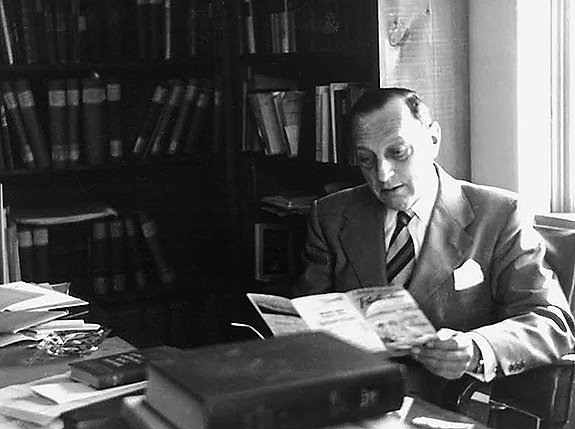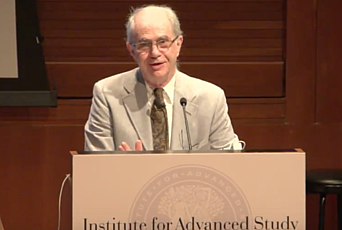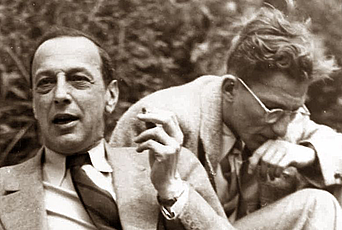Ernst Kantorowicz: A Life

Few twentieth-century historians deserve a full-scale biography more than Ernst Kantorowicz (1895–1963) on the basis both of “work” and “life.” More than fifty years after his death Kantorowicz remains one of the most influential of all medieval historians, perhaps the most influential. To be sure, the work of others might count as equally great . . . [but] nothing written by any of them continues to sell as well as Kantorowicz’s The King’s Two Bodies. This book has been kept in print by Princeton University Press since its first appearance in 1957; it has been translated into German, French, Italian, Spanish, Portuguese, Polish, Slovenian, and Japanese. The steady sales and numerous translations reflect the fact that Kantorowicz’s book has had extraordinary resonance in several disciplines: not only in history but in art history, literary criticism, and political thought. Fifty years after the book’s publication, Stephen Greenblatt wrote that it “remains a remarkably vital, generous, and generative work.” Giorgio Agamben has called it “unquestionably a masterpiece” and “one of the great texts of our age on the techniques of power.”
Although Kantorowicz’s reputation rests primarily on The King’s Two Bodies, substantial claims can be made for his other works. His first book, published in German in 1927 as Kaiser Friedrich der Zweite (Frederick the Second), was one of the most discussed history books in Weimar Germany. Establishment academic historians attacked it because of its alleged “mythical view” of the Hohenstaufen emperor, but others welcomed it as marking a liberation of historiography from positivism. Whereas the book appeared without footnotes, leading many to suppose that the author was inventing things, Kantorowicz embarrassed his critics in 1931 by publishing a “supplementary volume” that documented most of what he had written. Although other biographies of Frederick II have superseded it, the work remains a historiographical monument, and the supplementary volume remains basic for scholarship. (“You don’t want to go into thirteenth-century Italian history without your Kantorowicz.”)
Then there is Laudes Regiae, written over the course of a decade but first published in 1946. Whereas the main methodological claim for the importance of Friedrich der Zweite lay in its use of literary sources (poems, prophecies, panegyrics), and that for The King’s Two Bodies its use of legal sources, the claim for Laudes Regiae lies in its use of liturgical sources. As Kantorowicz remarked in his preface, he hoped it soon would no longer be possible for scholars “to deal cheerfully with the history of mediaeval thought and culture without ever opening a missal.”
All this said, the lives of scholars are seldom stuff for engrossing reading. “Stay close to your desk and you may be the winner of an endowed chair.” Yet the life of Ernst Kantorowicz is an exception. Born of a wealthy Jewish liqueur manufacturing family in Posen (now Poznań), in his early career Kantorowicz was an ardent German nationalist. He volunteered to fight for the Kaiser in the First World War, winning an Iron Cross for his service on the western front (he was wounded during “the hell at Verdun”), and an Iron Crescent from the Ottoman Empire for his service in Anatolia. At war’s end, he took up arms three times in the space of a few months: against the Poles in his native city, against the Spartacists in Berlin, and against the “reds” of the short-lived Soviet Republic in Munich. Supposedly, Kantorowicz said in the postwar period “right of me is only the wall”; in 1922 he wrote that German policy should be dedicated to the destruction of France. Closely connected to his politics was his membership in the elitist circle of the German poet-prophet Stefan George. Widely considered at the time to be Germany’s greatest living poet, George was a riveting cult figure who espoused antirationalism, antimodernism, hero-worship, and faith in the country’s subterranean resources (the “Secret Germany”). George dedicated himself to grooming a coterie of handsome and clever young men: they were expected to address him in the third person, hang on his every word, and propagate his ideals by their writings and example. The goal was to transform Germany into a land of truth and purity. Kantorowicz was one of the most prominent “youths” in the George circle (another was Claus von Stauffenberg, later Hitler’s near assassin), and he wrote his biography of Frederick II with the “Meister’s” encouragement.
After the Nazis took power, Kantorowicz spoke against them courageously as a full professor from the lecture platform to an overflowing crowd in Frankfurt in November 1933. (This may have been the only time that a German professor expressed himself publicly against the regime.) Unable to continue teaching because of Nazi student boycotts, he was forced to “retire” and become a private scholar. In 1938, he barely escaped Kristallnacht and fled first to England and then the United States, where in the fall of 1939 he took a one-year position at Berkeley. This was succeeded by further interim appointments there until 1945, when he finally gained a full professorship. He would have been happy to stay in Berkeley for the remainder of his career, but the loyalty oath controversy at the university prevented that. Kantorowicz, of course never a communist, immediately became a leader of faculty opposition to the oath and remained a stalwart “nonsigner” until he was fired in August 1950. Then he “fell up the ladder” by an appointment at the Institute for Advanced Study in Princeton, where he pursued his scholarly interests while maintaining friendships with a considerable number of the most noted intellectuals of his day.
Kantorowicz had a fascinating personality. He was urbane and witty (and sometimes nasty). He was a natty dresser, a noted wine connoisseur, and a flamboyant cook. He flourished at night and resented being called in the morning before ten. From 1934 until his death, his closest friend was the Oxford don Maurice Bowra, widely thought to have been the wittiest man in Oxford. The two traveled together through Europe in the mid-1930s and summered together in Greece in the 1950s. Other friends included a roll call of Weimar intellectuals and Institute notables. Kantorowicz was a brilliant lecturer and a renowned teacher at Berkeley. He could be seen on campus surrounded by one group of students, who delivered him to another group, who then escorted him further. He had girlfriends and boyfriends. He was transferred out of the German Fifth Army in Turkey because of an affair with the mistress of the commanding general. In the early 1920s, he had affairs successively with the wife of one his good friends and an aristocratic young man in the George circle. Shortly afterward, he entered into a relationship with the half-sister of the young aristocrat, and then he and Bowra became lovers. In the United States, he had a long-term intimate relationship with his first cousin.
Ernst Kantorowicz’s life and work became an ambitious research project for me in 1988. In the fall of that year, I was asked to participate in a conference on “German-Speaking Refugee Historians in the United States after 1933” to mark the opening of the German Historical Institute in Washington. Because my assignment was to speak on prominent medievalists, I decided to choose Kantorowicz. Coincidentally in that academic year I was holding a membership at the Princeton Institute, and accordingly I was able to talk with a considerable number of local eminences who had known Kantorowicz well. That did it. After I gave my Washington lecture, I resolved to gather materials “toward a biography.” Around that time, I came to thinking of Kantorowicz as “EKa” (from the German for his initials and pronounced to rhyme with “Hey, Ma”) because that was the way he asked to be called by his friends. I follow that usage here. One might say then that I have been working at this biography for twenty five years, but that is not entirely true because I began the actual work of writing four years ago. But because EKa was someone who “combined depth of mind with abundance of spirit” (I borrow the phrase from his friend Felix Frankfurter), the long engagement has never ceased to be rewarding.
Recommended Reading and Viewing
A video of a recent Institute talk by Robert Lerner on Ernst Kantorowicz: www.ias.edu/ideas/2017/lerner-kantorowicz
“The Kantorowicz Conundrum” by Jacob Heilbrunn, The National Interest, May–June 2017, http://nationalinterest.org/feature/the-kantorowicz-conundrum-20194
“He Remade Kings: A Scholar’s New Views” by George Prochnik, New York Times, January 5, 2017, https://nyti.ms/2jLvkBj


